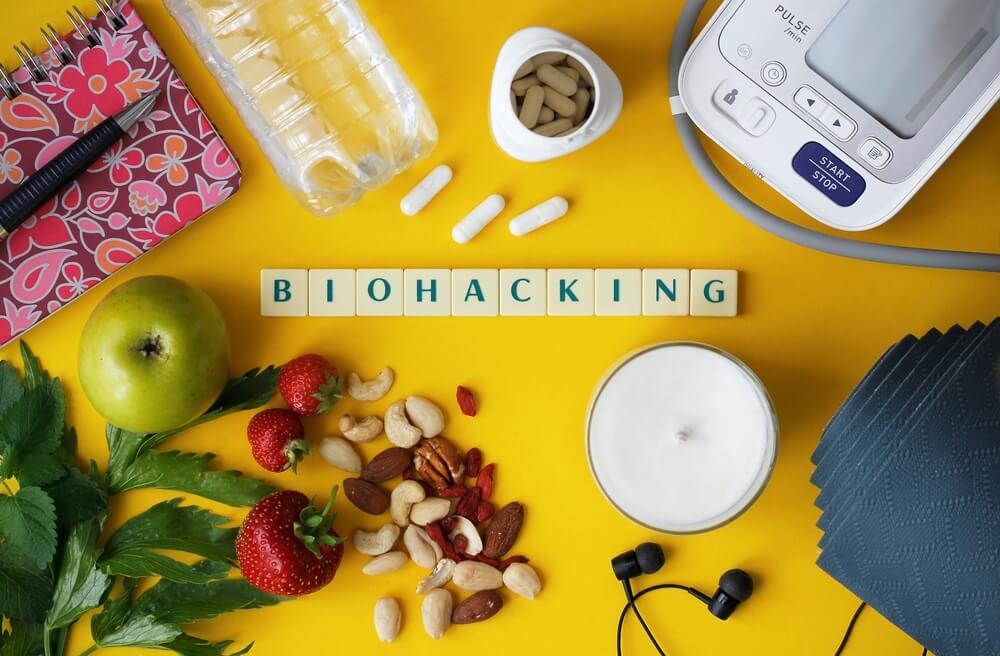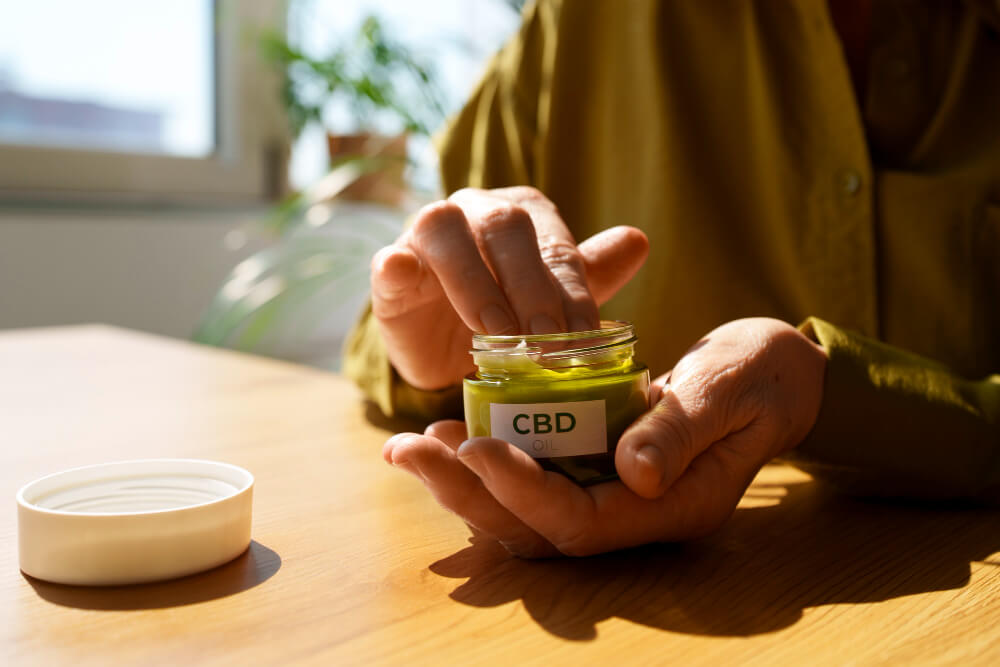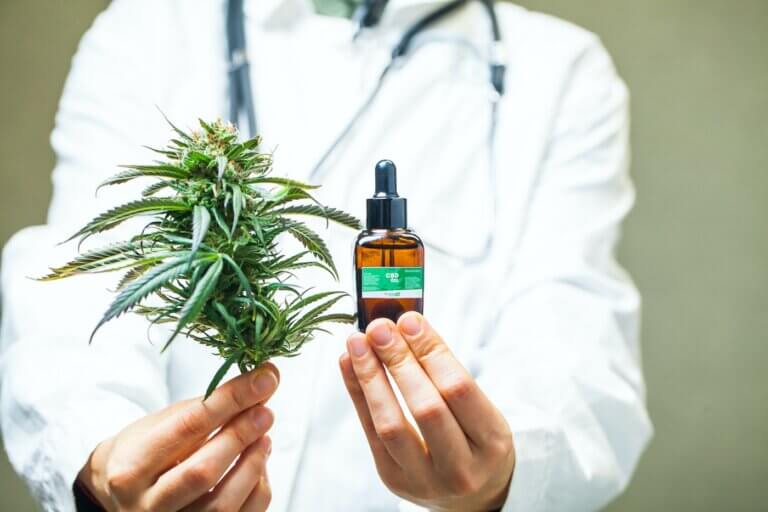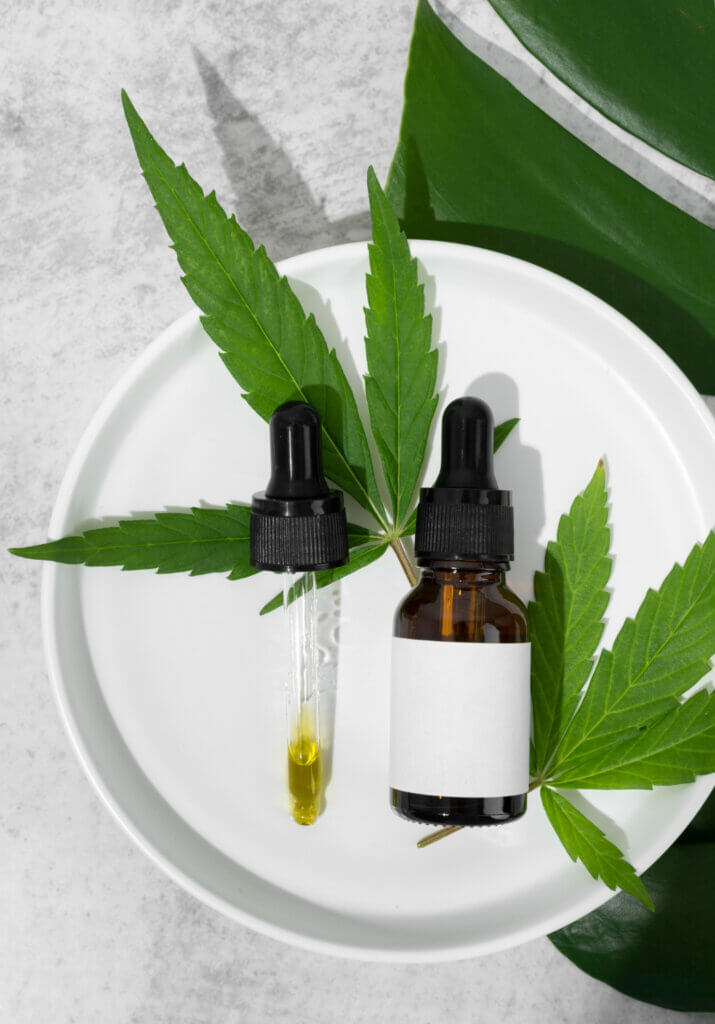You’ve probably heard about biohacking in recent years, a trend related to health and well-being that has gained a lot of popularity lately. Celebrities, influencers, health and medical personalities, and personal trainers often proclaim the virtues of biohacking regarding the proper functioning of our bodies, so it’s not surprising that it’s a trend with an increasing number of followers.
But what exactly is biohacking? What are its goals and how does it achieve them? Can cannabis be used in this practice? In today’s article, we are going to answer all these questions and many more so that you have no doubts if you want to take advantage of some of the potential benefits of the plant, which as you probably know are quite a few. So we’re giving you a spoiler…cannabis can help a lot in this context! Below we’ll tell you how.

What is biohacking?
Biohacking is a practice that focuses on improving human biology through science, technology, and lifestyle adjustments. It involves optimizing both physical and mental health using methods ranging from supplementation, diet control, and exercise, to the use of advanced technologies, although this last point is not of interest to us today. The goal is to improve cognitive, physical, and emotional performance, thus resulting in a general improvement in the quality of life and well-being of people who follow this trend.
In this context, the use of natural substances such as cannabis is gaining ground among those who seek to maximize their well-being naturally, because as you will see, there are various applications of our favorite plant for this purpose, and many of the people interested in biohacking prefer a more natural approach to this practice. But what exactly does biohacking seek? What are its main objectives?
- Improve both physical and mental performance
- Increase available energy and vitality
- Reduce common problems such as stress and anxiety
- Improve sleep and overall quality of rest
- Increase concentration and productivity
- Improve mood and feelings of happiness
- Reduce the risk of chronic diseases

Substances used in biohacking and their properties
Biohacking uses a wide variety of substances, both natural and synthetic, each with specific properties that help improve bodily and mental functions. As we have said, there are different trends within this practice; some will want to improve basically physical aspects, others will focus on mental aspects, and some will prefer to use exclusively natural substances…As you can see, it is mainly about focusing on what you want to improve and how, that is, with what type of substances. These are some of the most used:
- Nootropics: These are used to improve memory, concentration, and overall cognitive abilities. Common examples include piracetam, pyrithione, and modafinil.
- Adaptogens: These plant substances help the body adapt to physical and mental stress. Ashwagandha, Rhodiola, and ginseng are known adaptogens that promote stress resistance and improve energy.
- Microdosing psychedelics: Controlled use of substances such as psilocybin or LSD in small doses can increase creativity, focus, and problem-solving skills, without causing hallucinogenic effects. Microdosing psilocybin has gained a lot of popularity in recent years.
- Vitamins and minerals: Magnesium, vitamin D, and essential minerals are examples of essential supplements that biohackers incorporate to optimize brain and body functions.
- Cannabinoids and terpenes: Cannabis has found a place among biohackers due to its effects on the endocannabinoid system, which contributes to the regulation of mood, inflammation, and sleep.

What is the endocannabinoid system? (ECS)
Do you know what regulates hunger, sleep, menstrual pain and also libido in our bodies? The endocannabinoid system is responsible for the balance of all these functions on which our health and emotional well-being depend so much. In this article, we explain what it is, how it works and what to do to keep it healthy.
Of course, these are just a few examples of these types of substances, although we can find many more that are often used to improve well-being or performance; compounds such as omega-3 acid, creatine, L-Tyrosine, or even caffeine have their place in this practice and are increasingly used. As we say, there are many people willing to ingest extra quantities of natural substances that are already in their diet or that their own body synthesizes, although there are not as many willing to use certain drugs, not to mention technologies such as Elon Musk’s Neuralink.
Although today we focus on the more “bio” and natural part of this trend, it is no less true that some of the biohacking proposals raise certain concerns regarding ethical and moral issues related to transhumanism.
Cannabis and biohacking: how cannabinoids and terpenes can help
In this context, cannabis has gained popularity for its ability to provide benefits such as reducing stress or anxiety, improving sleep, and relieving pain. In this way, the cannabinoids and terpenes present in cannabis are integrated into biohacking strategies in order to improve physical, mental, and emotional performance.
In the field of biohacking, cannabis stands out for its ability to interact with the endocannabinoid system, a complex system that regulates several essential functions, such as memory, appetite, pain, and mood. For example, CBD (cannabidiol) is a cannabinoid widely used by biohackers due to its anti-inflammatory properties, and its ability to reduce stress and anxiety without the psychoactive effects of THC.
THC (tetrahydrocannabinol) can be used in controlled doses to improve sleep, reduce muscle tension, and relieve pain. However, many people prefer other alternatives that do not have psychoactive effects. Another example could be CBN (cannabinol), which has shown interesting relaxing and even sedative properties, promoting better sleep management.
Alternatively, terpenes, which are responsible for the aromas of cannabis, also play an important role in biohacking. These compounds not only influence the taste and aroma of the plant but also have therapeutic properties. Terpenes such as limonene and linalool are known for their effects on mood and relaxation.
Considering that cannabis is capable of producing hundreds of different compounds, most of them with their own properties and effects, it is not surprising that this plant has been the subject of study by proponents of biohacking, as there are many potential applications that this plant can have in this field.

Cannabinoids and terpenes useful for biohacking
We have just seen how cannabis contains a wide variety of cannabinoids and terpenes that are useful in biohacking to impact various aspects of our health, well-being, and performance. Here are some of the compounds that have generated the most interest:
Cannabinoids
- CBD (Cannabidiol): Ideal for reducing inflammation, relieving anxiety, and improving focus without affecting cognitive abilities.
- THC (Tetrahydrocannabinol): In small doses, it improves sleep and relieves pain. It can reduce stress, but in higher doses, it causes psychoactive effects; as with other substances such as psilocybin, microdoses of THC are becoming more common to avoid having to deal with these effects.
- CBG (Cannabigerol): Has anti-inflammatory and neuroprotective properties. Helps improve concentration and well-being.
- CBC (Cannabichromene): It is associated with neurogenesis and is a good support for brain health.
- CBN (cannabinol): It has anti-stress and sedative properties, useful in cases of insomnia or where sleep quality needs to be improved.
Terpenes
- Limonene: Increases energy, reduces anxiety, and improves mood.
- Linalool: Known for its ability to reduce stress and promote relaxation.
- Myrcene: Promotes muscle relaxation and is useful for inducing deep sleep.
- Pinene: Improves memory and mental clarity. It also acts as a bronchodilator, improving breathing.

Conclusions
You’ve already seen how biohacking seeks to optimize the performance of the human body through advanced and natural strategies, and cannabis, with its wide range of cannabinoids and terpenes, has become a key tool in this process. Thanks to its ability to interact with the endocannabinoid system, biohackers can use cannabis to improve their physical, mental, and emotional well-being, whether by reducing anxiety, improving sleep, or optimizing cognitive performance.
References:
- Biohacking, bodies, and do-it-yourself, Mirjam Grewe-Salfeld
- Efficacy of Cannabis-Based Medicines for Pain Management: A Systematic Review and Meta-Analysis of Randomized Controlled Trials, J Aviram, G Samuelly-Leichtag
- Biohacking ¿mejoramiento o abandono de nuestra humanidad?, Diana Vanessa Sánchez Salazar
- Biohacking, Ali K. Yetisen
- Cannabinoids for treatment of chronic non-cancer pain; a systematic review of randomized trials, Mary E Lynch, Fiona Campbell
Source link
#science #applied #health #Alchimia #Grow #Shop